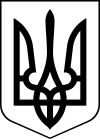German Volunteer Corps
| German Volunteer Corps | |
|---|---|
| Німецький Добровольчий Корпус Nimetsʹkyy Dobrovolʹchyy Korpus Deutsches Freiwilligen Korps | |
 Unit chevron | |
| Active | 2023[1] – present |
| Country | |
| Type | Foreign volunteer unit |
| Role | Light infantry |
| Size | Unknown |
| Engagements | |
| Website | Official Telegram channel |
| Commanders | |
| Current commander | Unknown |
| Insignia | |
| Flag |  |
The German Volunteer Corps (Ukrainian: Німецький Добровольчий Корпус, romanized: Nimetsʹkyy Dobrovolʹchyy Korpus German: Deutsches Freiwilligen Korps) is a volunteer unit composed of German national volunteers, part of the Main Directorate of Intelligence of Ukraine.[not verified in body] The unit has coordinated with various other Ukrainian military units under the Main Directorate of Intelligence of Ukraine, such as the Russian Volunteer Corps, the Free Russia Legion, and the Polish Volunteer Corps in Ukraine.[1]
History
[edit]Background
[edit]Since the outbreak of the Russian invasion of Ukraine on 24 February 2022, many German nationals have travelled to Ukraine to fight for both Russia and Ukraine. Many of these, reportedly by the Federal Ministry of the Interior, have been affiliated with left and right-wing extremism.[5] According to a report by German news outlet Welt, approximately 39 people that left Germany with the intention of participating in the conflict. 27 of these people were reportedly pro-Russian, and the remaining 12 were pro-Ukrainian. Additionally, it was also said that German authorities had significant proof of the majority of these people participating in combat.[6]
Other German nationals, unaffiliated with extremism have also joined the conflict. There have been a number of ex-soldiers, notably some being ex-servicemen from the German Bundeswehr, who have joined other structures within the Ukrainian Armed Forces such as the International Legion - belonging to the Territorial Defense Forces.[5][7]
Formation
[edit]It was reported by Militant Wire that the German Volunteer Corps was formed in June 2023, being within the structure of the Russian Volunteer Corps which trains, organises, and endorses them also.[1] The unit was formed on the basis by German nationals as well as external help from the Russian Volunteer Corps.[1]
Relations and allies
[edit]The German Volunteer Corps, according to Junge Welt, allegedly have connections and ties or otherwise similar ideological perspectives and viewpoints to the Third Way political party.[8] This political party, also commonly referred to as the Third Parth, is known to be a far-right and neo-Nazi political party having ties with the National Corps, the Misanthropic Division, Right Sector, and Svoboda in Ukraine.[9][10][11] The unit has a significant relation to units affiliated within the Russian Volunteer Corps, due to German Volunteer Vorps being part of its structure.[1] RAND Corporation have also confirmed the cooperation between several volunteer units in Ukraine, notably the Russian, Polish and German volunteer corps.[12]
Extremism
[edit]The Terrorism Research and Analysis Consortium reported that the German Volunteer Corps was considered as a "right-wing extremist group", most likely due to its affiliation and endorsement of extremist ideas and ideologies alongside the Russian Volunteer Corps.[13][unreliable source?][14][15]
Russo-Ukrainian War
[edit]2022 Russian Invasion
[edit]The unit, alongside the Russian Volunteer Corps for which they fight in cooperation with, has fought in several hotspots along the frontline during the invasion - notably in areas such as Avdiivka which fell to Russian forces in late February 2024.[16] It has been confirmed by German outlet Junge Welt that the unit has also participated in the Belgorod Incursions of 2023.[8]
See also
[edit]References
[edit]- ^ a b c d e "History and Weapons Analysis: Polish and German Neo-Nazi Militias Emerge Alongside Russian Volunteer Corps". Militant Wire. July 19, 2023.
- ^ Struck, Julia (2023-11-10). "Kyiv Confirms Assassination of FSB Lieutenant Colonel, RDK Fighters Promise to Release Video". Kyiv Post. Retrieved 2024-04-10.
- ^ "Российские «военкоры» сообщили об атаке вооруженных групп на приграничные районы Белгородской и Курской областей Легион «Свобода России» утверждает, что это его бойцы «пересекли границу». ФСБ и Минобороны РФ это отрицают". Meduza (in Russian). 2024-03-12. Retrieved 2024-05-25.
- ^ Sauer, Pjotr (2024-03-14). "Pro-Ukraine exiled Russian fighters launch cross-border raid into southern Russia". the Guardian. Retrieved 2024-05-25.
- ^ a b "German volunteers fighting in Ukraine, including 61 potential extremists – Interior Ministry". Ukrinform. 2023-07-30. Retrieved 2024-05-25.
- ^ Naber, Ibrahim (2023-07-29). "Ukraine: Dutzende Extremisten aus Deutschland kämpfen im Kriegsgebiet". DIE WELT (in German). Retrieved 2024-05-25.
- ^ "The Latest in a Long Line: Ukraine's International Legion and a History of Foreign Fighters". Harvard International Review. 2022-09-02. Retrieved 2024-05-25.
- ^ a b "BRAUNE KRIEGERTRUPPEN An der alten Ostfront". jungewelt. July 12, 2023.
- ^ "German neo-Nazis march with Ukrainian nationalists in UPA march". Euromaidan Press. October 15, 2018.
- ^ Knight, Ben (2021-10-25). "Who are Germany's far-right 'Third Path'? – DW – 10/25/2021". dw.com. Retrieved 2024-06-05.
- ^ Knight, Ben (2022-03-28). "Germany's far-right split by Russia-Ukraine war – DW – 03/28/2022". dw.com. Retrieved 2024-06-05.
- ^ Mueller, Erik E. (2023-08-07). "The Russo-Ukrainian War Has Bolstered Ukraine's Nonstate Alliance Network". RAND. Retrieved 2024-07-26.
- ^ "(Right-Wing Extremism) Deutsche Freiwilligen-Korps (DFK/German Volunteer Corps) Foreign Fighters Resume Activity in Ukraine". TRAC. 2023-07-24. Retrieved 2024-05-25.
- ^ Dettmer, Jamie (2024-04-03). "Ukraine embraces far-right Russian 'bad guy' to take the battle to Putin". POLITICO. Retrieved 2024-05-25.
- ^ Pikulicka-Wilczewska, Agnieszka (2023-05-11). "Insight: How Russians end up in a far-right militia fighting in Ukraine". Reuters. Retrieved 2024-05-25.
- ^ Waterhouse, James (2024-02-16). "Ukraine war: Is Avdiivka's fall a sign Russia is turning the tide?". BBC News. Retrieved 2024-05-25.

